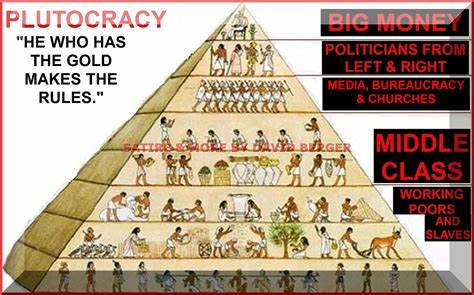
Governments have proven loath to address the challenge, precisely because many depend on populist nationalism for their own political support. The rise of populist nationalism around the world stands out as a second critical governance challenge, in large part because it often undermines the effectiveness of global institutions and urgently needed transnational coordination. As they tout their accomplishments at Davos, they can and do bring others along with them. Corporations are starting to do so on their own. Governments could have taken these steps on their own through significant regulation, but lack the political will to do so. Business as well as government leaders joined Salesforce CEO Marc Benioff’s commitment to plant 1 trillion trees to replace some of the 3 trillion lost since the industrial revolution. Other major corporate actors, from Black Rock to Microsoft to Lloyds pledged to cut or eliminate their corporate emissions. So too, at Davos, 140 of the world’s largest companies pledged to work together to develop environmental, social, and governance metrics. At Davos, a group of the world’s largest pension funds pledged to decarbonize its asset holdings through the Net Zero Asset Owner Alliance. Climate was the issue that garnered the most debate and discussion during the meetings. The emissions of participants attending the meetings were staggering. The score card on climate at this year’s World Economic Forum was far from perfect. If Davos can become a forum for political pressure and venue for commitment and coordination to make that change, then it has a critical role to play in today’s global governance. Those corporations were not represented at the state-based negotiations in Madrid, yet they have the direct capacity to change their own behavior and, in coordination, can meaningfully mitigate climate change. If national governments are unable or unwilling to regulate them, then the corporations themselves must become the source of change. Just 100 companies are responsible for close to 70% of the global emissions that cause climate change. At the inter-governmental meetings of the United Nations Framework Convention on Climate Change in Madrid last month, little progress was made. Take, for example, the climate emergency facing humanity today. The gathering of corporate leaders and the super-rich in Davos last week is one such place.Īddisu Lashitew Tuesday, January 21, 2020Īt the same moment that governmental leadership has faltered, the nature of our collective global challenges has shifted in ways that make corporate leadership and economic might all the more important. When governmental leadership fails on such a scale, the engines of governance, the resources to address collective challenges, and the political will to act must be found elsewhere. While China may now have the resources to lead, President Xi Jinping is more concerned with domestic economic trends and spreading China’s influence through the Belt and Road Initiative than addressing climate or migration. From Boris Johnson’s Brexit to Jair Bolsanaro’s realignment of Brazilian foreign policy, from Narendra Modi’s turn to populism in India to Viktor Orbán’s version of Hungarian nationalism, governments across the globe are retreating from our common challenges.


leadership is but a symptom of a larger movement by national governments to look inward, build fences with the outside world, and hope for the best. The failure of political leadership to address these challenges is evident on a global scale. Economic and corporate leadership on global governance challenges is so urgently needed today for two reasons: First, political leadership around the world is stalled or gridlocked, preventing progress and second, the global challenges we face - from climate emergency to the perils of populist nationalism, from the regulation of cyberspace and the ownership of data to the dangers and opportunities of mass human movements - cannot be solved without action by wealth-holders and decisionmakers of the corporate community. It is, however, in these precarious times that we need Davos more than ever. On its face, Davos appears to be a meeting out of touch with the times, focused more on privilege than social change, economic displacement, or cross-cutting global challenges. At invitation-only receptions, at exclusive piano bars, and on the ski slopes, cards are exchanged, introductions made, and business deals concluded. At plenary sessions, the values of capitalism are extolled, risks to the global economy considered, and the relationships between economic trends and governmental policies debated. Billionaires lobby to get all-access badges for the week and then share self-important selfies with the word “Davos” prominently visible. It is appropriate to criticize the World Economic Forum as an elitist gathering of the super-rich.


 0 kommentar(er)
0 kommentar(er)
